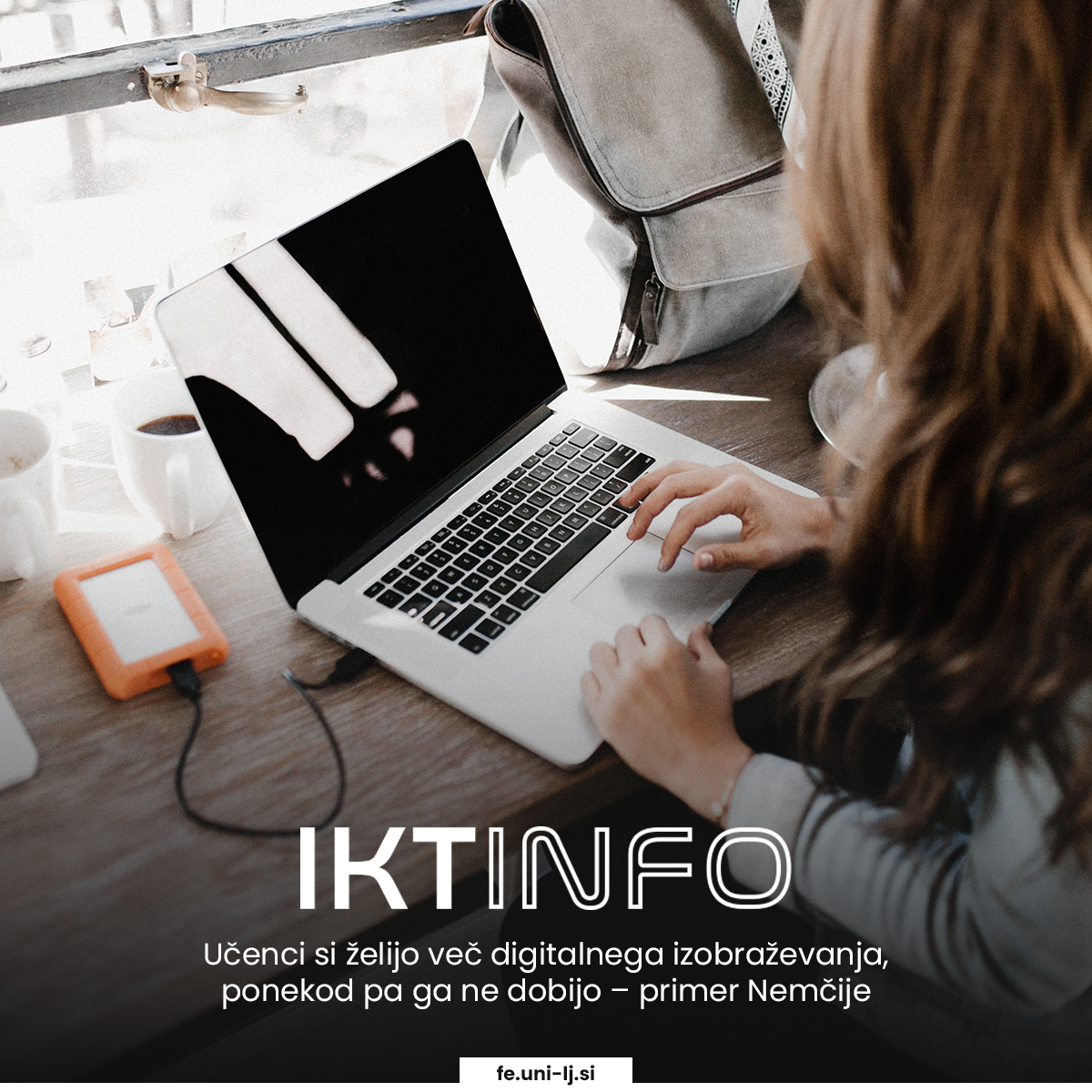[ICTinfo] Students want more digital education, but in some places they don't get it - the case of Germany
Date of publication: 21.11.2023A survey of 504 students aged 14-19 by analytics firm Bitkom confirms their high interest in digital education. However, the digitalisation of German schools is not in the best shape, Bitkom estimates, with almost 9 out of 10 students (87%) describing the lack of or inaccessible Wi-Fi as the biggest problem in their school, while 59% put the lack of lecturers as the number one problem. Third on the list of shortcomings is poor technical equipment, which 56% of students cite as one of the biggest problems. Pupils' interest in digital education is high and their open attitude is a great opportunity to modernise German schools, Bitkom points out. For almost half of the pupils, the most pressing problems at school include insufficient use of digital devices and educational media (48%), overcrowded classrooms (46%), teachers with insufficient skills according to the pupils (37%), outdated teaching content (26%) and damaged school buildings (20%). As many as three quarters of students say that using digital educational media such as learning platforms makes them more motivated (74%) and more than half say they can write better (56%), while only 13% do not want to use educational media. Overall, students experience teachers as very open to digitalisation, with 62% pointing out that most of their teachers have a fairly positive attitude towards digital devices and educational media, and 16% saying that most even have a very positive attitude. On the contrary, only 14% of students think that most professors have a rather negative attitude towards digital devices and educational media and only 5% think that most have a very negative attitude. Finally, tablets (67%) and projectors (63%) are the most used digital devices in schools, followed by laptops (51%), smartphones (36%) and stationary computers (32%).
The economy, manufacturing, education and other sectors have been subject to increased pressures and changes in recent years as a result of the pandemic and the measures taken to contain it, as well as the Russia-Ukraine war, as confirmed by various surveys and analyses. The Information and Communication Technologies (ICT) sector is also exposed to similar changes, but at the same time it is able to monitor, assess and control changes not only in its own sector but also in all other sectors, which has been a valuable help to all of them in recent years.
ICT helps businesses and institutions in all industries to organise work, adapt operations, streamline operations, process data, evaluate results, predict trends and discover new opportunities. And they enable schools and universities to implement hybrid forms of teaching and meaningful digitisation of learning processes.
This is why we have decided to publish regular summaries of information, assessments, analyses and studies by research and analyst companies that can help everyone to better monitor, learn about and understand changes and trends and to adapt more successfully to the new ICT era.
Prepared by the Department of Information and Communication Technologies in collaboration with Esad Jakupović





